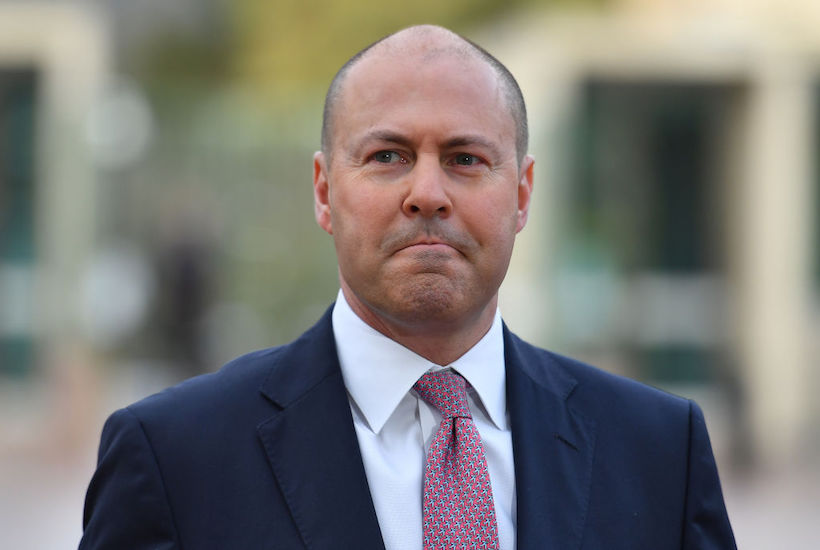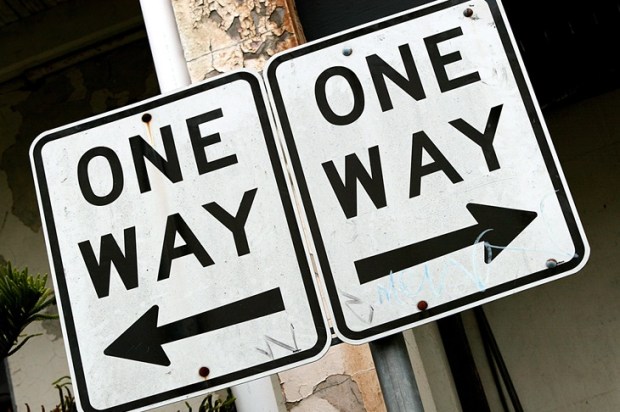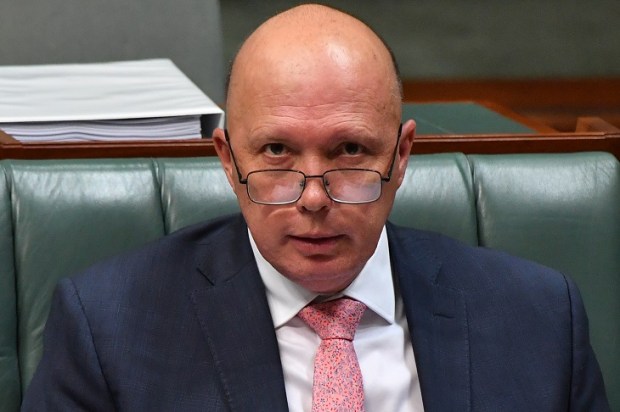He’s the man who would be king, but Josh Frydenberg originally wanted to be a tennis pro rather than a politician.
No doubt we will be going through his biography with a fine-tooth-comb if he eventually takes over as Liberal Party leader. If he does, he could become Australia’s first Jewish Prime Minister.
His ascendancy is not guaranteed, however, because we all know that politics is an uncertain game. Frankly, who thought Scott Morrison would ever be PM?
After leaving school at Mount Scopus College, Frydenberg trained at a tennis academy in Queensland where he played against Mark Philippoussis and Pat Rafter. He was also chosen to represent Australia in tennis at the World University Games in 1991 at Sheffield, England, and again in 1993 in Buffalo, United States.
If Frydenberg had become a professional tennis player, sport’s gain would have been politics’ loss.
The talented MP for the blue-ribbon Melbourne seat of Kooyong has some critics who say he’s ‘too much into self-promotion’, but he is widely admired, highly principled, and he has been extremely loyal to Morrison.
Frydenberg is Australia’s 40th Treasurer and the fifth longest-serving Liberal Party Treasurer after Peter Costello, Harold Holt, John Howard, and William (‘Billy’) McMahon. Frydenberg is also the Liberal Party’s eighth longest-serving Deputy Leader.
His 2019 federal Budget helped ensure that Australia maintained its AAA credit rating from the three leading credit rating agencies. Australia was one of only nine countries in the world to do so. Importantly, his 2019 Budget became a platform for the federal election and framed the campaign as a contest about economic management.
Since then, he has adroitly orchestrated Australia’s economic response to a once-in-a-century pandemic and the biggest economic shock since the Great Depression.
Frydenberg’s response featured programs such as JobKeeper, which saved 700,000 jobs according to the Reserve Bank of Australia, and JobSeeker – which doubled the safety net.
Frydenberg also introduced the Cash Flow Boost that supported small and medium-sized businesses along with the loss carry-back, which provided the biggest investment incentives to Australian businesses in our history. Plus, he increased payments to pensioners, carers, veterans, and others on income support.
As Treasurer he put into direct action ex-Prime Minister Howard’s exhortation that ‘at times of national crises, there are no ideological constraints’.
Indeed, Australia was the first major advanced economy to see employment and economic activity above pre-pandemic levels. During the Covid recession, Australia avoided a ‘scarring’ in the labour market. It took just over a year to see the unemployment rate fall below its pre-pandemic level, whereas in the 1980s it took eight years, and in the 1990s it took a decade for the unemployment rate to recover to where it was.
Among other achievements, Frydenberg has consistently called out some of the failures under Victorian Premier Dan Andrews, which culminated in Melbourne becoming the longest locked-down city in the world. By maintaining pressure on Andrews to open Victorian borders, he helped accelerate the lifting of the state’s Covid restrictions.
The Treasurer has not only delivered several significant speeches about China and the financial and fiscal risks of climate change, but also led significant structural reforms in competition law. This involved getting Facebook and Google – in a world first – to pay traditional news media businesses for generating original content.
Regarding insolvency law, Frydenberg legislated the biggest changes in 30 years, introducing aspects of US Chapter 11 bankruptcy proceedings. He also made major changes to superannuation law. For the first time, more than ten million Australians with superannuation can check the performance and the fees of their funds, with under-performing funds penalised. This is likely to save Australian consumers over $17 billion and represents the most significant changes to compulsory superannuation since it commenced in 1992.
Through the Council of Federal Financial Relations (a meeting of Commonwealth, State and Territory Treasurers chaired by the Federal Treasurer) Frydenberg has reduced red tape. He has reached an agreement, for example, on the mutual recognition of occupational licenses enabling more than 120,000 people a year, including tradies, to move freely to work in different jurisdictions without new fees or licenses.
Frydenberg undoubtedly helped engineer the Coalition’s surprise victory at the last federal election. Now that the Morrison/Joyce government is the clear underdog for next year’s federal election, any chance of the Coalition defeating the ALP may again rest with Frydenberg.
The Treasurer has maintained the Coalition’s political advantage on economic management.
A Resolve poll conducted for Nine Newspapers on October 24, 2021 found 45 per cent of voters thought the Coalition were better economic managers compared to 23 per cent of voters who nominated the Labor party. An exclusive Newspoll conducted for The Australian published on October 26, 2021 showed that 40 per cent of voters believe the Coalition would be better in government at leading the country on the path to recovery compared to just 26 per cent backing an Albanese-led Labor government. This is arguably a direct result of Frydenberg’s economic and fiscal stewardship.
If Scott Morrison resigns or hands over the reins of government, the two key contenders for the Liberal Party leadership are the current Treasurer and the bellicose Minister for Defence, Peter Dutton, who has represented the Queensland seat of Dickson since 2001.
To me, it seems crystal-clear that Dutton, an extremely ambitious and often truculent ex-policeman, does not present a public image that appeals to Australian voters at large. Dutton has ability but does not come across as a person fit for the highest political office.
In contrast, Frydenberg is perceived as a hard-working politician and a decent person. In fact, he could be just the person to be PM.
Ross Fitzgerald is Emeritus Professor of History and Politics at Griffith University. His most recent books are a memoir, Fifty Years Sober: An Alcoholic’s Journey and the co-authored Grafton Everest adventure, The Lowest Depths, both published by Hybrid in Melbourne.
Got something to add? Join the discussion and comment below.
Get 10 issues for just $10
Subscribe to The Spectator Australia today for the next 10 magazine issues, plus full online access, for just $10.

























Comments
Don't miss out
Join the conversation with other Spectator Australia readers. Subscribe to leave a comment.
SUBSCRIBEAlready a subscriber? Log in